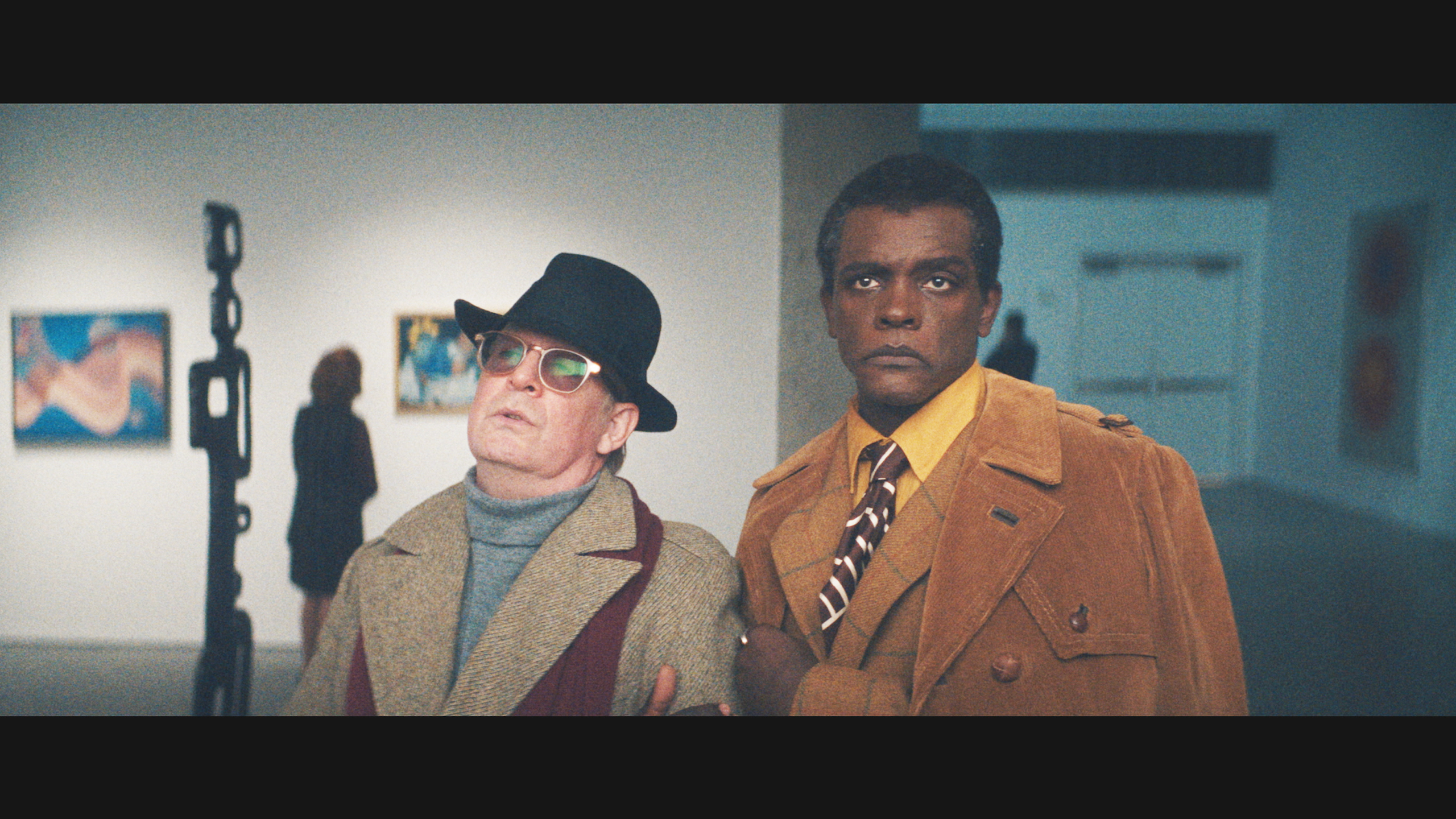Unveiling the True Connection Between Truman Capote and James Baldwin | Vanity Fair

Written by Chris Murphy
The plotline of the popular show Capote vs. The Swans thickens with the introduction of renowned writer and activist James Baldwin, played by Chris Chalk, in its fifth episode. On this occasion, with Truman Capote, portrayed by Tom Hollander, sinking deeper into alcoholism and isolation from his cherished swans, post the blowback from his Esquire short story “La Côte Basque, 1965,” Baldwin comes in as an essential visitor. In the series, Baldwin both confronts and comforts the distressed author, resonating with their complicated real-life relationship.
The episode named “The Secret Inner Lives of Swans,” shows Baldwin visiting a highly intoxicated Capote on the verge of a total meltdown. Baldwin, depicted as a keen critic and unyielding truthteller, encourages Capote to not squander his talent. The pair crisscross across New York City, starting from the La Côte Basque restaurant to an undercover gay bar, discussing the trials of being queer authors in the mid-70s, ultimately ending up at Capote’s house. The episode culminates with a reinvigorated Capote dining on a swan stolen from Central Park, cooked by a La Côte Basque chef.
In reality, the chances of Baldwin being available to guide Capote in his self-reconstruction process seem slim. Like Capote, Baldwin was a successful and acclaimed author by the mid-1970s. He had gained nationwide recognition through his esteemed works including 1953’s Go Tell It On the Mountain, 1955’s essay collection Notes of a Native Son, and his path-breaking queer novel Giovanni’s Room, released in 1956. He had left his home in Harlem for Paris, primarily due to the unending racism he experienced in America. Baldwin passed away in his home in Saint-Paul de Vence, France on December 1, 1987 due to stomach cancer, a few years after Capote.
Baldwin, in his essay The Discovery of What It Means to be an American, 1959, explains his move by writing, “I wanted to prevent myself from becoming merely a Negro; or, even, merely a Negro writer…Still, the breakthrough is important, and the point is that an American writer, in order to achieve it, very often has to leave this country.” Overseas, he continued to produce adored works, like his 1962 novel Another Country, the essay collection The Fire Next Time in 1963, and the novel If Beale Street Could Talk in 1974. Baldwin's rendezvous with Capote in Capote vs. The Swans is a poetic license taken by the writer, Jon Robin Baitz who described episode five as an imagined encounter. Their actual relationship was known to be less cordial.
Baitz's research reveals that Capote didn’t particularly appreciate Baldwin’s fiction. In a letter to Newton Arvin, a literature scholar and Smith college professor, Capote in 1962 wrote about Baldwin’s fiction as crudely written and unbearably boring. However, he did express some appreciation for Baldwin's essays, though his praise came with Capote's trademark biting sarcasm.
That’s not to say Capote was the only one who had acerbic words for Baldwin. In the December 17, 1964 issue of the New York Review of Books, American theatre critic Robert Brustein wrote a scathing review of Nothing Personal, a collaboration between Baldwin and famed high fashion photographer Richard Avedon. In the review, called “Everybody Knows My Name,” Brustein rips their collaboration to shreds, beginning, “Of all the superfluous non-books being published this winter for the Christmas luxury trade, there is none more demoralizingly significant than a monster volume called Nothing Personal.” Avedon’s photos were accompanied by occasional text from Baldwin, which Brustein also went out of his way to eviscerate in his review. Baldwin’s contributions to Nothing Personal, Brustein wrote, pop up “interrupting from time to time, like a punchy and pugnacious drunk awakening from a boozy doze during a stag movie, to introduce his garrulous, irrelevant, and by now predictable comments on how to live, how to love, and how to build Jerusalem.” Harsh.
Not so fast, said Capote. In his published response, “Avedon’s Reality,” found in the January 28, 1965 edition of The New York Review of Books, Capote defended Nothing Personal, saying that he was both “interested and startled” by Brustein’s review. “Brustein is an intelligent man: a theater critic of the first quality, one of only three this reader can read with a sense of stimulation,” Capote acknowledges. “But surely Brustein’s comments regarding the Avedon-Baldwin collaboration is as distorted and cruel as he seems to find Avedon’s photographs.”
While much of the letter is in defense of Avedon—a friend of Capote’s—the In Cold Blood author does show support for Baldwin too, disputing Brustein’s assertion that Baldwin and Avedon made the book simply for the money. “First of all, if the publisher of this book sold every copy, he would still lose money. Neither Baldwin nor Avedon will make twenty cents,” wrote Capote. “Brustein is entitled to think that Avedon and Baldwin are misguided; but believe me he is quite mistaken when he suggests, as he repeatedly does, that they are a pair of emotional and financial opportunists.” Even when they don’t like each other’s work, artists of a feather stick together.




